https://projecterotterdam.wordpress.com/
Introducció
Rotterdam és una de les ciutats més importants dels Països Baixos. En nombre d’habitants, és la segona ciutat més poblada del país i actualment, disposa del port marítim més gran de tot Europa.
Aquesta situació de calma i prosperitat econòmica contrasta, i molt, amb la que va patir la ciutat en la Segona Guerra Mundial ja que, durant el transcurs de la guerra, l’aviació alemanya va destruir (pràcticament en la seva totalitat) el centre de la ciutat. Una vegada acabada la guerra, la reconstrucció del centre fou prioritat absoluta per als seus ciutadans i la ciutat que avui regeix el present és precisament, la projecció i el resultat de la planificació i l’execució de la reedificació urbana de la postguerra.
Per altra banda, i tenint en compte un paradigma més actual (en base a un context de globalització i de crisi climàtica), Rotterdam és una de les ciutats que forma part de la xarxa global de ciutats C402 i que treballa amb l’objectiu d’enfrontar la crisi climàtica i promoure un futur pròsper i igualitari per a tothom. Juntament amb altres ciutats, com ara Barcelona, Londres, Oslo o Nova York, la ciutat de Rotterdam promou i dur a terme accions amb caràcter col·laboratiu i d’acord amb la ciència.
Així, “Projecte Rotterdam” pretén ser un viatge immersiu en una de les ciutats més importants del vell continent, segons la regeneració urbana que pateix la ciutat en la segona mitat del segle passat i l’enfocament holístic i sostenible que planteja per al desenvolupament de les ciutats (i la societat en general) per als pròxims anys.
Objectius del projecte
1. Conèixer Rotterdam. Principalment, visitar el centre de la ciutat (edificis emblemàtics, art de carrer, etc.).
2. Identificar i conèixer diferents casos d’estudi vinculats amb la variabilitat climàtica, les condicions del clima i el canvi climàtic.
3. Visitar comerç local (economia circular).
4. Gaudir d’una obra de teatre o musical en directe.
The greener the better
Sometimes, when we talk about resilient projects we think in programs (or services) that have evolved through adversity. In this case, “Stadskwekerij de kas” started 5 or 6 years ago because a plant nursery business had to close down the green house facility. Right now, it is a volunteer project that works very close with Rotterdam residents.
For example, in the spring season, the inhabitants of Rotterdam create green spaces in front of their houses and “De Kas volunteer’s” help them to choose the right flowers. They always work with native seeds and plants species.
Currently, their agenda is focused on managing the “Adopt a Christmas tree” plan with the main objective of making the Christmas time more sustainable minimizing the carbon footprint of the city.

Yet, during these days, they deal with other subjects too like building a plant save zone indoor the green house or enhancing garden areas for the slow infiltration rainwater into the ground soil.
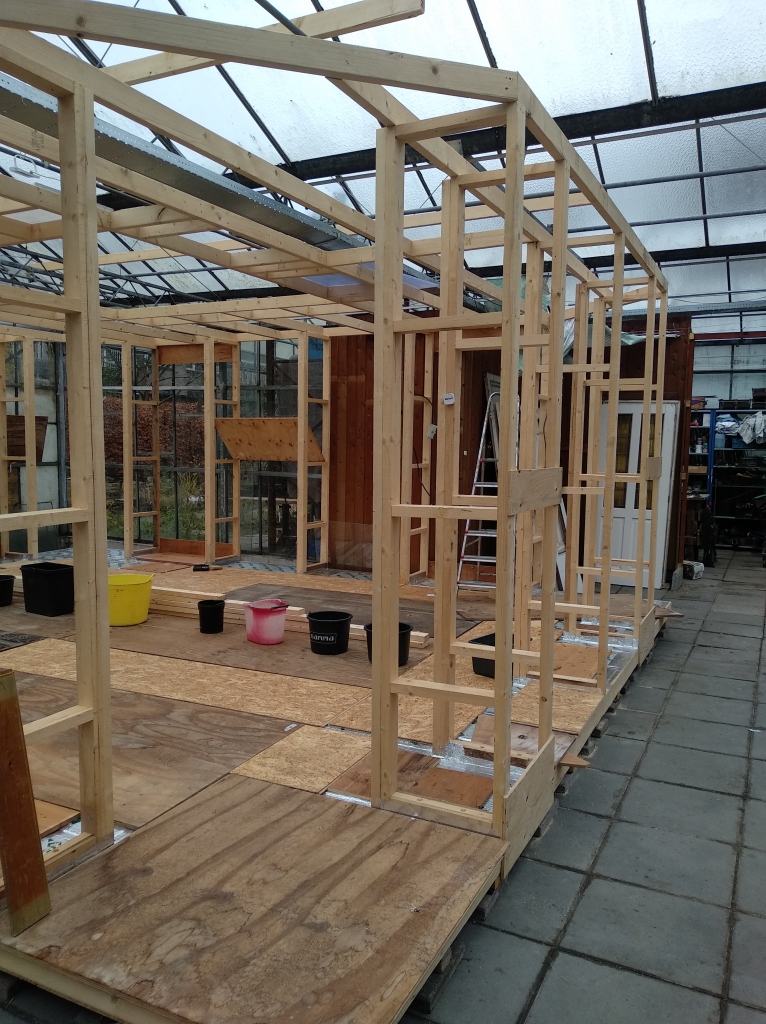
Also, they are running a long term project with the whole water management facility system due to face off the spring drought period. They even have a “river” (they built it themselves) for “baptizing the plants” instead of pouring them with water in the spring season.
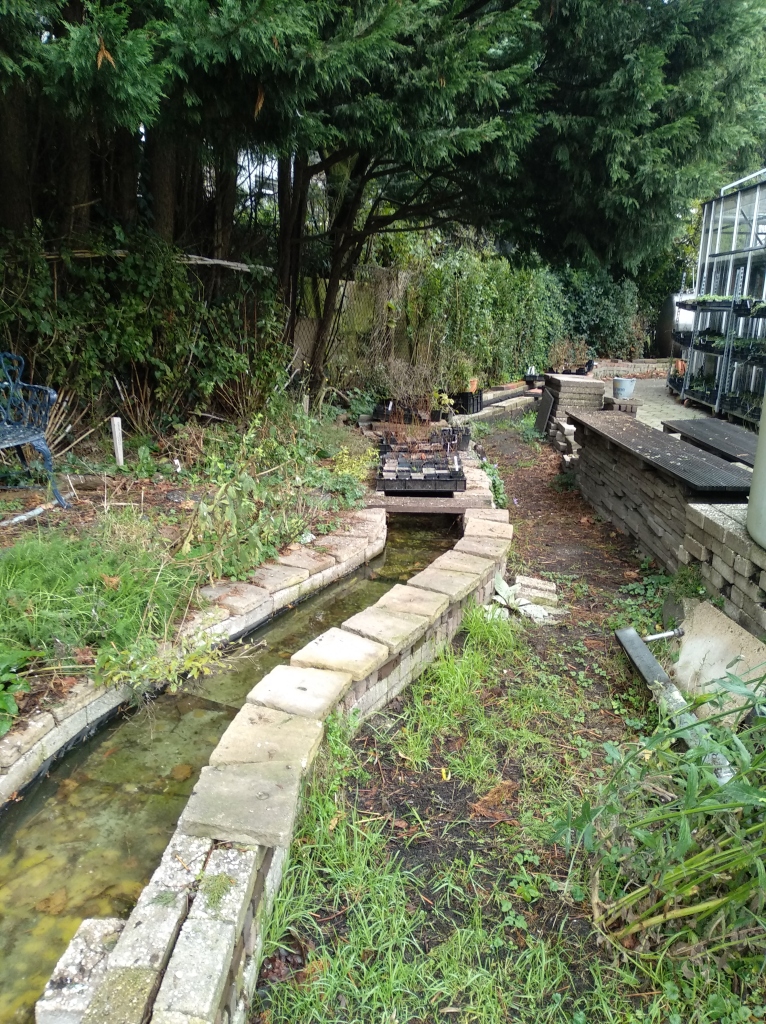
After visiting them and see what they are doing, I think that a resilience project is not only the capacity to evolve through adversity itself, but also a demonstration of great attitude to pull something off when the situation gets worse.
On the other hand, I have had the opportunity to visit “The Kunsthal”, an amazing museum in the city. These days, there are some interesting exhibitions in it like the “Live paintings: Nature” (Refik Anadol) and “Rotterdam! The urban jungle” (Xaviera Altena, Johan Kleinjan and Nuno Orlando).
Anadol creates nature digital paintings from data using tech tools as AI or complex algorithms. I have never experienced anything similar before.

In the “Rotterdam! The Urban jungle”, the artists capture their reflections about the mixture between the urban context and the natural systems.


It has been an awesome day. I started in a place where they take actions to improve sustainability and ended up where nature has been inspirational for the artists. I just can think the greener… the better!
Into the loop
It’s not easy. When you want to be sustainable, you have to think out of the box…
The Floating Farm is making a “Transfarmation“, developing a farm on the sea. Yes, on the sea. It is very close to the city and it creates a lot of synergies with local businesses.
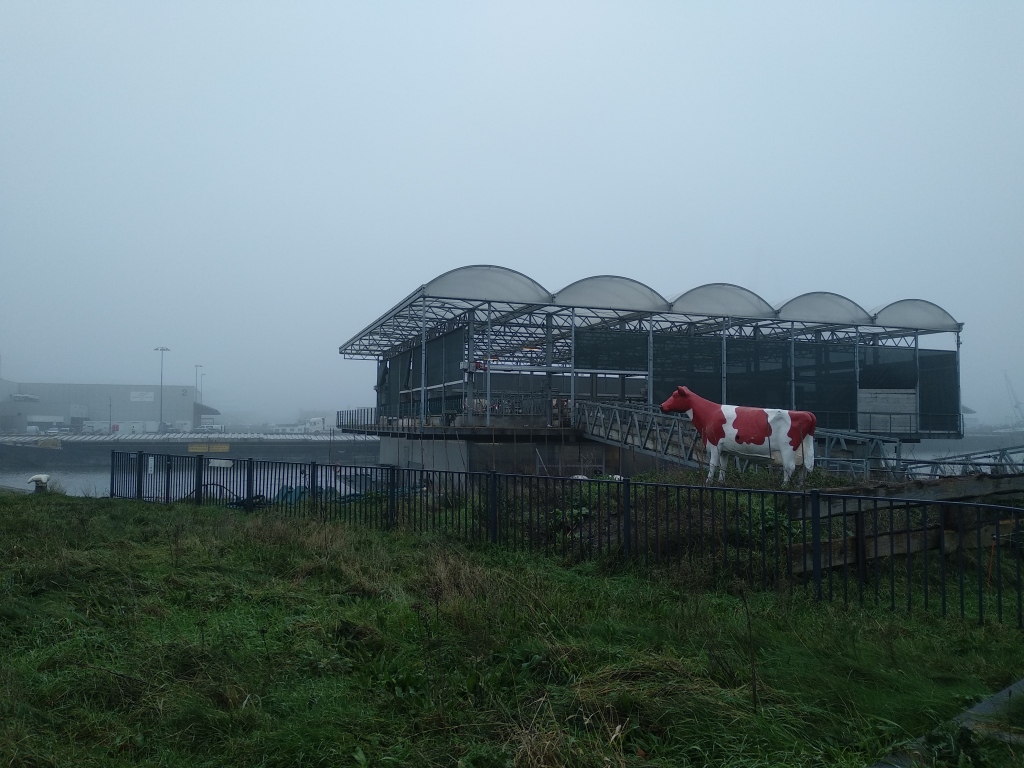
The cow’s food is not only straw, but also grain leftovers from beer production or restaurant leftovers. They are trying to be an educational project (for the community), a scalable activity (to reproduce the idea) and a test lab (for improving the methodology).

They face problems like the indoor facility temperature, tech infrastructure issues or the energy solar system gap.


The Rotterzwam, is another place where they work with leftovers. In this case, they use coffee or grain from beer production to grow mushrooms. Inside cargo ships, they grow a lots of mushrooms, but in a slow way. They have to compete with companies that can produce more product in a cheaper way.
And the Vet&Lazy brewery. Once the beer is created, they send the grain leftovers… to a farm like the Floating farm or the Rotterzwam. Guess what? They also have a… mushroom beer. Let’s start over?
A friendly way
There is no room for war. Never. After the Second World War, Rotterdam had to rebuild it’s buildings, streets, public transport network… Nowadays, the city vibes through bicycles, art and a wide range of activities that allow you to have fun anytime.

For instance, the cubic houses (Kijk-Kubus) are a great example of contemporary art and inclusive architecture at the same time.



The water square, Benthemplein is another local spot where an integration between innovative construction and water management has been done.

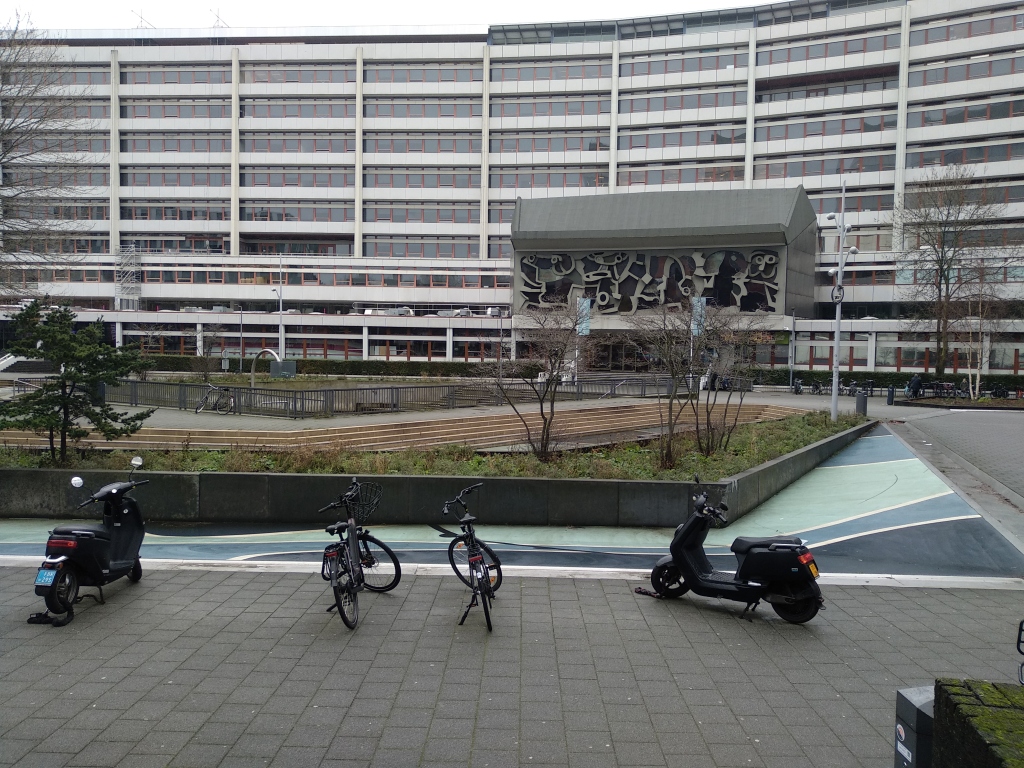
Or, the Market Hall (Markthal). A very popular place where different “cuisines” from over the world are settled under a beautiful wall paint.
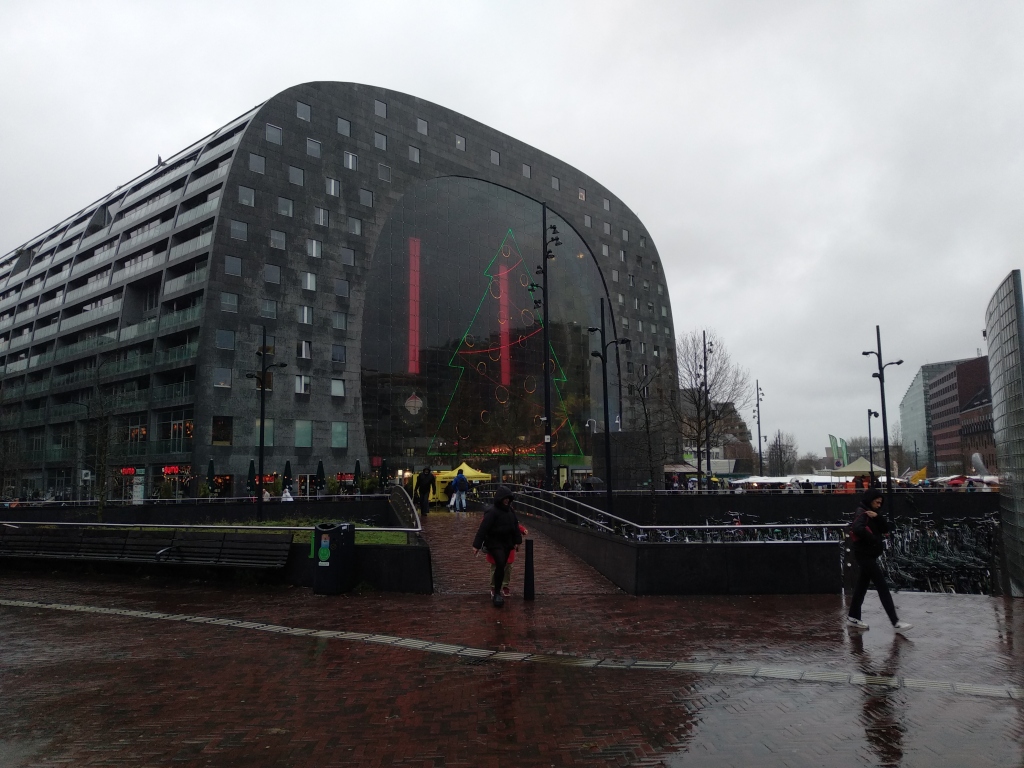


Rooftops are another point of view of the city. Some buildings have encouraged “life” over the roof too.

All in all, Rotterdam is a modern city where you can find any kind of activity in a friendly way. Don’t forget your bicycle, though.

